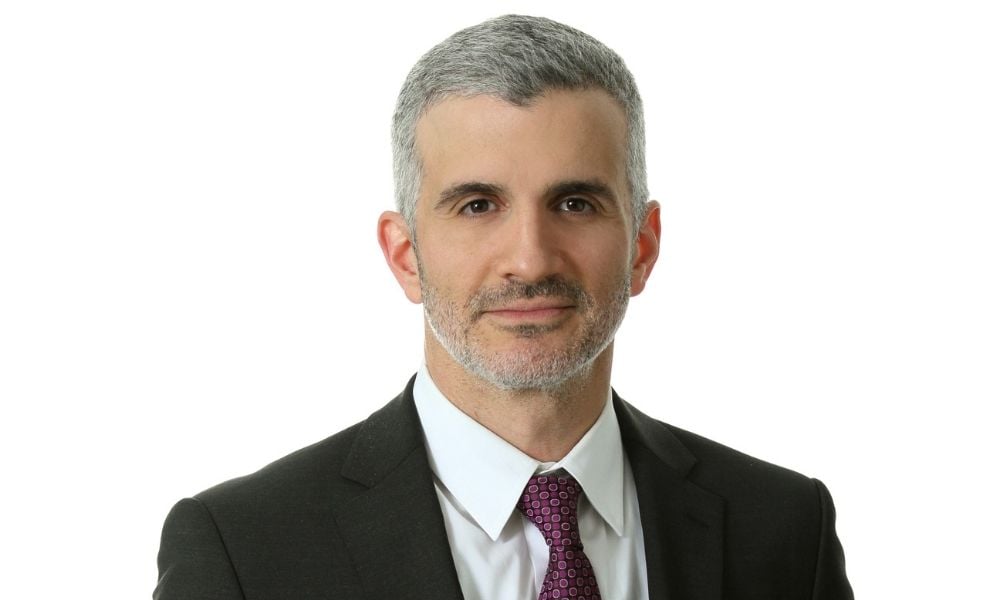
It would be hard for workplaces to terminate employees for vaccine hesitancy: lawyer

As health officials declare that vaccines are no longer helpful for reducing workplace transmission of COVID, the Public Service Alliance of Canada (PSAC) has filed a grievance against mandated vaccine policies that have placed many workers on unpaid leave.
The PSAC has filed policy grievances on behalf of all members in the federal public service – including the Treasury Board, Canada Revenue Agency, the Canadian Food Inspection Agency, and Parks Canada – who have been put on leave without pay because of their vaccination status.
Corporate lawyer Daniel Freiheit says that in September, unions were not necessarily supportive of a federal employee’s decision not to get vaccinated because of the risk of spreading the virus and were given a choice to get vaccinated or unpaid leave.
Federal employees must rely on the union to file the grievance, which he says is tricky. “If they have a justifiable religious or medical exemption, they’ll get paid on their leave of absence but then, how long? How long can a person survive without an income?”
Unpaid leave is a very stressful financial and mental situation for an employee, and he says unions now realize they will have to start fighting for workers.
“One of my clients was on unpaid leave indefinitely, her health deteriorated rapidly, and her blood pressure increased, so she had to go on medication,” he says. “Why do you [employers] still require vaccines if the mandates cannot prevent Omicron transmission?”
Vaccine mandates have created tension across the Canadian workforce. However, Freiheit says chief medical officers realize now that it would be challenging for all workplaces to have cause to terminate anybody for vaccine hesitancy or refusing a vaccine at this point.
He says it is concerning that despite knowing vaccine mandates do not prevent transmission, government and health officials are not easing up on the directives for unvaccinated people.
There are ongoing consequences to vaccine mandates, and Freiheit says the cost for someone unable to see a family member across the country, have an income or participate in a business because they are not vaccinated is starting to add up.
“Many not fully vaccinated people are not despicable people holding on to unacceptable views. But, in some cases, people have gotten one dose and had bad reactions, which didn’t qualify them for medical exemptions, but they still did not want to proceed to the second dose.”
Canada’s chief public health officer, Dr. Theresa Tam, has announced that the Treasury Board, which employs all federal civil servants, actively examines all mandatory vaccine policies. However, Freiheit says the board is doing a financial assessment rather than prioritizing the public health interest.
Vaccine injury rates have yet to be determined, and he says Canadians must know how an insurance program operates, and its entitlements and the vaccine injuries department should disclose its data.
“I’m hearing cases of Thrombotic thrombocytopenic purpura (TTP), which are blood disorders,” he says, “there’s Guillain Barre Syndrome (GBS), yet we don’t know how frequent.”
Canadians need to know the global health causes and assess them against vaccine mandates because there are costs to individuals whose lives have been deeply affected by being forced to get vaccinated, he says.
“People don’t know there’s a vaccine injury support program that pays up to $250,000 and are not applying to get compensated.”
Grant Thornton Consulting, an advisory firm, manages vaccine injuries, but Freiheit says the public should discuss damages in an open forum with the government involved.
The concern is that it’s all private health information when you have the vaccine injury managed by the company, he says.
“Nobody can see who’s making the decision, making it seem like these vaccine mandates have no cost, but they do. They have a cost on all the people whom they have injured.”
Canadians agreed to a vaccine injury support program, but if it is not marketed correctly or difficult for people to get their applications in or determine the cause of injury, Freiheit says it should be open for dialogue.
“Singapore has paid 300 claims for vaccine injuries. Canada is seven times the population and paid five claims,” he says. “Anyone forced to get vaccinated against their will because they wanted to jump on a plane, see a loved one, or required their job needs to understand the vaccine injury rate and how the compensation system works.”